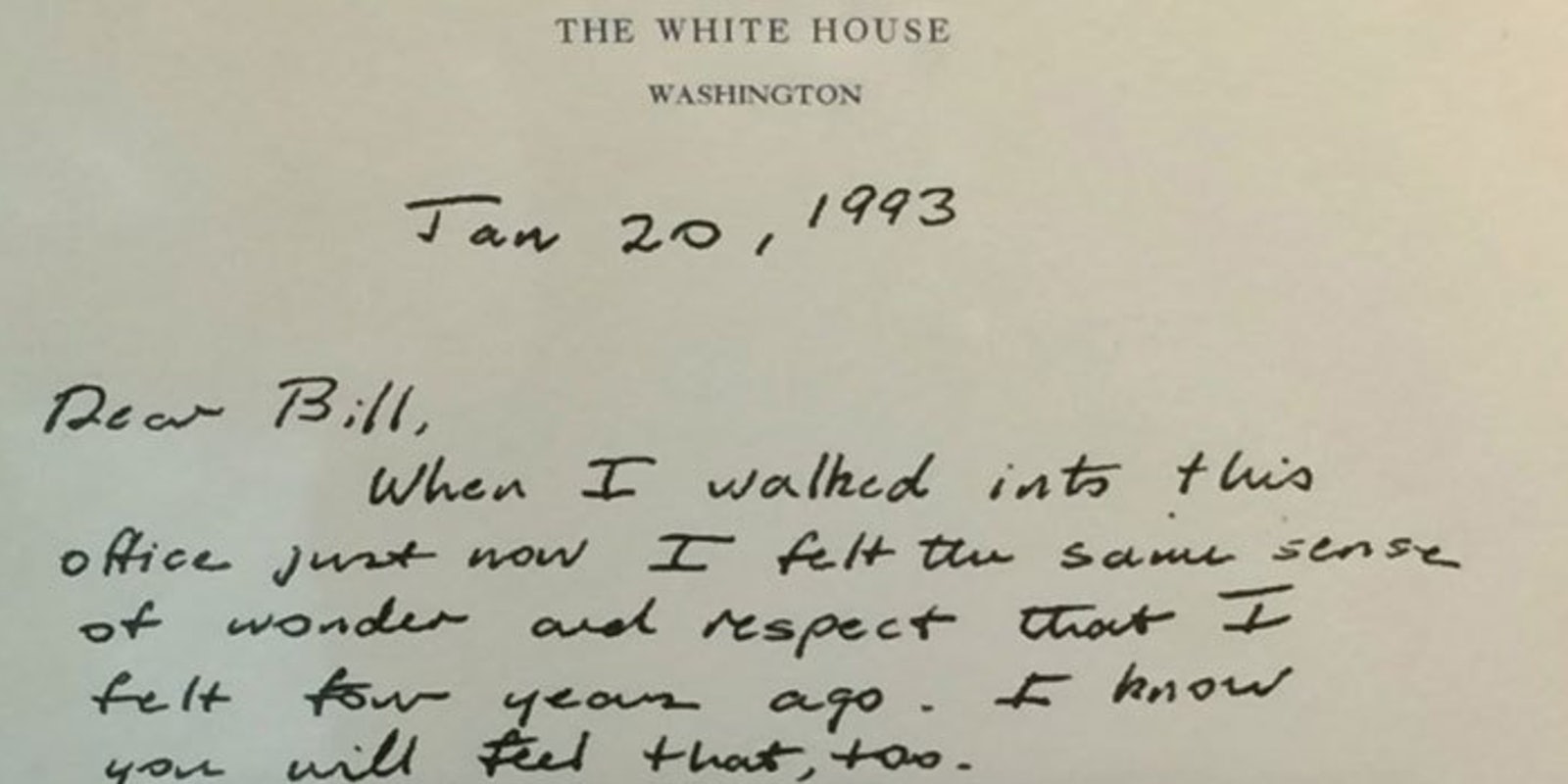BY LUCY TIVEN
If Republican presidential nominee Donald Trump’s cries of election rigging have left you craving some good old fashioned civility in politics, you’re not alone.
A kind letter from former President George H.W. Bush to his successor, former President Bill Clinton, has struck a nerve on social media and inspired comparisons between Bush’s gracious words and this year’s vicious presidential race.
A long, long time ago, in a land far far away, politics had grace. George H.W. Bush’s letter to Bill Clinton on leaving office: pic.twitter.com/bJn6ojWRS4
— Saba Gul (@sabagl) October 16, 2016
@bethanyusher A statesman’s class. A citizen’s pride of country. Admirable, in both roles.
— fx (@fhaedra) October 17, 2016
https://twitter.com/MaryGMcG/status/788182099215933440
The cordial transfer of power between our 41st and 42nd presidents provides a stark contrast to the final days of the 2016 election.
@snickerfritz04 I so miss the integrity of former real Presidential races.
— Susan Beck (@susanbeck101) October 19, 2016
This to the guy of beat him. It feels like something written a million years ago…
— Miguel Clark Mallet (miguelclarkmallet.com) (@mar_de_palabras) October 19, 2016
In recent weeks, the presidential race has been dominated by Trump’s (thoroughly debunked) comments about the race being “rigged” against him.
Contrary to Trump’s remarks—which a Boston Globe editorial’s headline called his “attempt to delegitimize the election”—voter fraud in the United States is very rare. From the Washington Post:
“You can read Republican election lawyer Chris Ashby’sthorough explanation of how difficult it would be to rig an election. Ashby walks through the checks and balances in place, highlighting the fact that the election is broadly distributed across states, counties and precincts and that the actual mechanics of running the election are executed by ordinary citizens.
“Or you can look at studies tracking voter fraud, like the now-famous one in which a professor at Loyola Law School traced years’ worth of votes and found only a few sporadic instances of possible — but not certain — fraud. Specifically: 31 incidents out of 1 billion votes cast.”
Civil transfers of power after vitriolic elections have long been part of American political history.
TeachingAmericanHistory.org explains:
“The first ever peaceful transition of power after bitterly contested popular elections fought by principled partisans occurred in America, in the ‘Revolution of 1800,’ after elections that gave the Republican party led by Thomas Jefferson control over both the presidency and congress. Both the Republicans and their opponents, the Federalist party, believed that the fundamental principles of democracy were at stake in the conflict between the two parties.”



